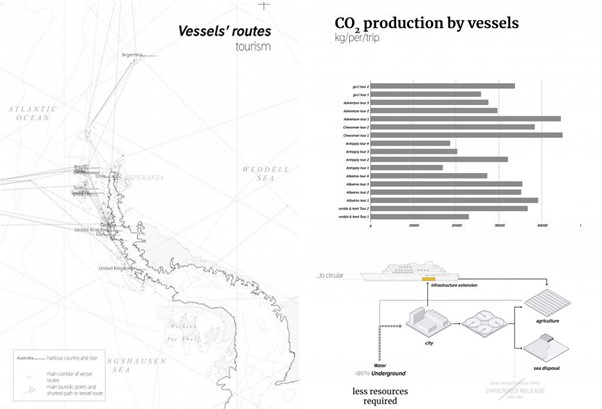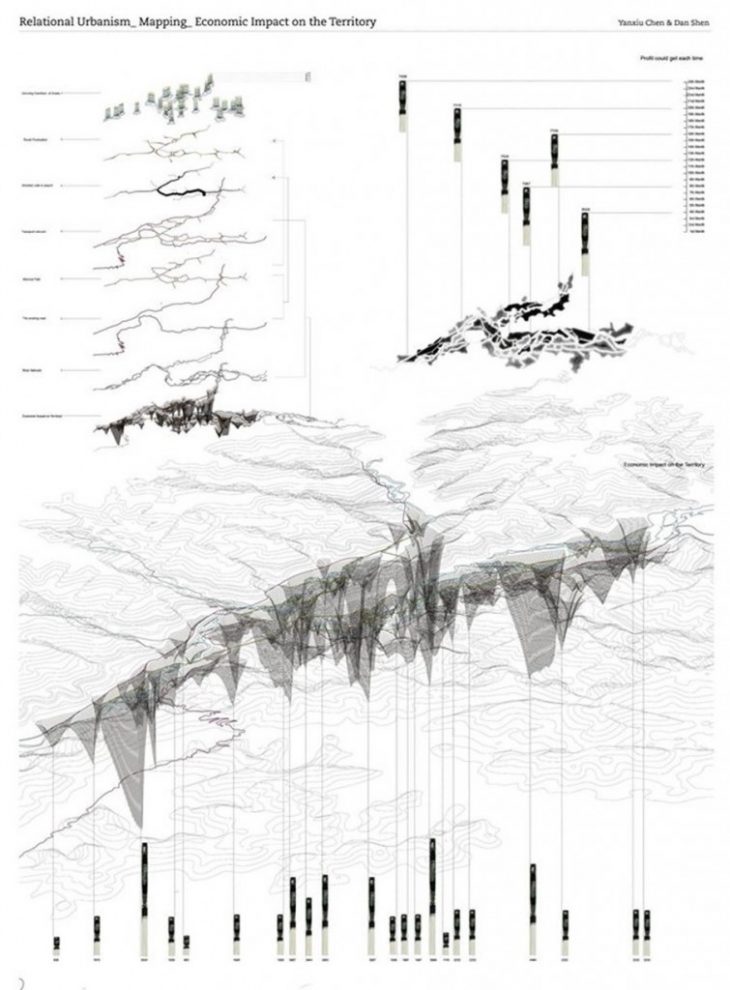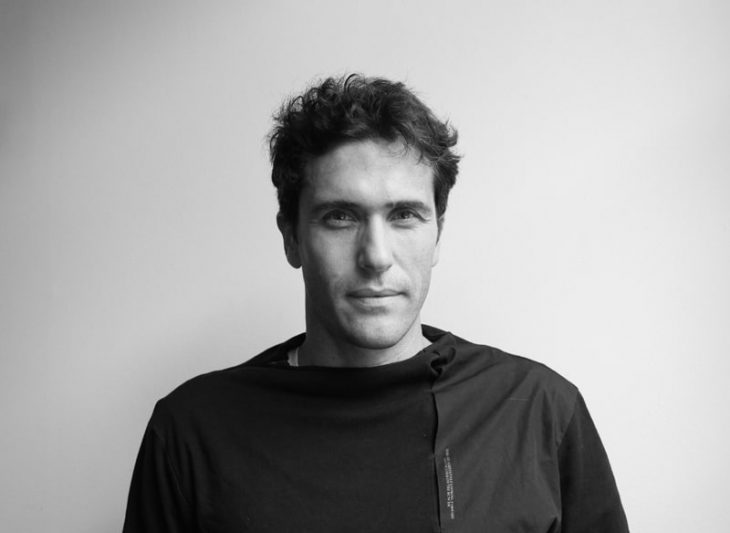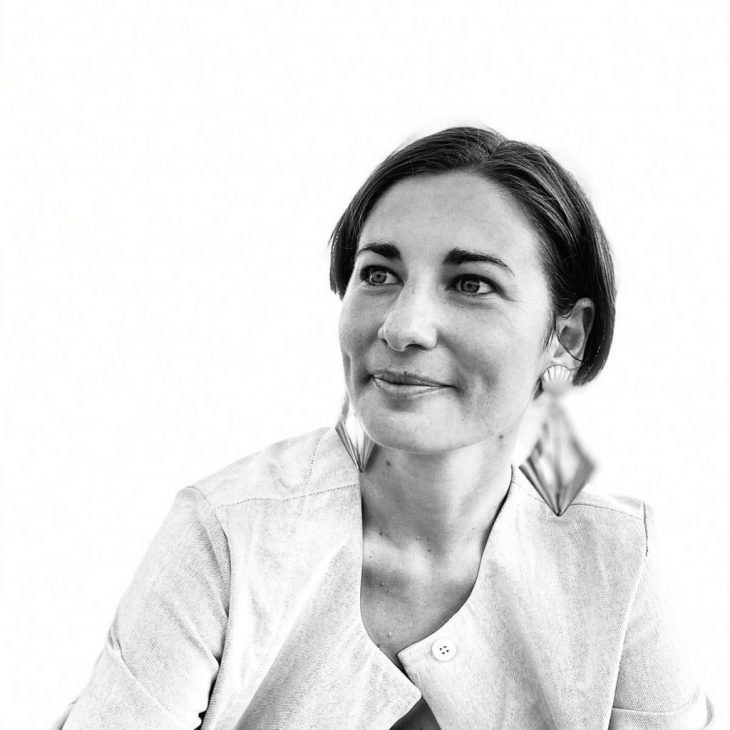Master in City & Technology 2020/21 – Term I
Studio Name: The Internet of Cities – Circular Planning, towards collective and connected urbanism
Faculty: Eduardo Rico & Mathilde Marengo
Faculty Assistant: Iacopo Neri
CAESAR Workshop: Raul Bielsa
Syllabus
Though today only 3% of the world’s surface is considered urbanised (GRUMP), 70% is consumed by human processes, transforming it from its “natural” or unprocessed state, into a state of alteration through human action, often linked to a form of consumption, whether this be related to physical or informational resources. Each possible form of this evermore complex urban context brings with it its own set of social, economic and environmental consequences, shaping a new urban geography, with a “fluid dimension” in a field of relationships (Ricci, 2012).
From the concept of the internet of things, commonly defined as “the interconnection via the Internet of computing devices embedded in everyday objects, enabling them to send and receive data”, the Internet of Cities speaks of connection, interaction and exchange of data and information through diverse scales of an urbanised context, enhancing its performance in response to challenges posed by the context itself.
Within this framework of endless connectivity, direct relationships between activities and places no longer exists, the Internet of Cities studio will reflect, discuss and experiment on the development of a collective and connected urbanism, allowing urban planning to reach circularity.

IAAC, MaCT1920, CIRCULAR TOURISM CAPITALISING ECOSYSTEMS, Internet of cities, Faculty: Mathilde Marengo, Edouard Cabay Students: Alejandro Quinto Ferrandez, Akshay Marsute, Jochen Morandell, Linara Salikhova.
Can individual design actions be collectively coordinated as part of a territorial plan? Can we identify large scale landscape formations whereby energy and material surplus can address the requirements of defined urban blocks and vice versa?
This question serves as a challenge for the brief of the course, where students will look at problems of material and energy flows at the metropolitan scale, looking to boost circular economy relations between city and countryside and hand over planning decisions to general members of the public by means of crowdsourcing small scale actions with inherent spatial nature.

Rc18, The Barltett School of Architecture 2013. Rural – urban population relations according to season, Tutors: Eduardo Rico, Enriqueta Llabres, Zachary Flucker, Students: Yanxiu Chen & Dan Shen
The Internet of Cities Studio proposes to cross experiment, between environmental forces and man made ones, across 2 urban territories in constant transformation, Barcelona and Luxembourg, with the end goal of exploring and understanding the relationships and potentially beneficial connections, and then confronting them, within the 2 selected contexts. The studio serves as a first point of contact for students with concepts of territory, cartography and urban political ecology. Projects will identify innovative ideas on spatially based “duties” and “rights” of citizens and how these give shape of new territorial formations at block and metropolitan scales.
Students will be asked to learn to use GIS software and environmental simulations (rivers, sediments and ecologies) in order to develop cartographies that structure a proposal of material and social dependencies across scales. They will be also asked to test small scale solutions at a block level, developing quantitative techniques that show interdependencies with the regional formations. The projects will be asked to develop proposals in the cities of Luxemburg and Barcelona, using scale comparison between them as a form of identifying the limits and potentials of the methodology.
Faculty

Eduardo Rico is a Civil Engineer focused on the application of creative forms visualization of data analytics in urban and landscape design. His current research focuses on the development interfaces that capture design in the form of sketches as a form of survey for large scale input in participatory processes. He is carrying out an EPSRC funded Ph.D. in the Space Syntax department in Bartlett school of architecture and acting as a design consultant for Space Syntax Limited. Eduardo currently Co-Directs the Landscape Urbanism master in the Architectural Association exploring the role of design within large landscape and environmental policy. He has extensive teaching experience in other institutions such as GSD, Bartlett and Berlage Institute. Eduardo has experience of working in the Urban Infrastructure Team in Arup as well as urban and landscape designer in a variety of award-winning projects with smaller firms in London.

Mathilde Marengo is an Australian – French – Italian Architect, with a PhD in Urbanism, whose research focuses on the Contemporary Urban Phenomenon, its integration with technology, and its implications on the future of our planet. Within today’s critical environmental, social and economic framework, she investigates the responsibility of designers in answering these challenges through circular and metabolic design.
She is Head of Studies, Faculty and PhD Supervisor at the Institute for Advanced Architecture of Catalonia’s Advanced Architecture Group (AAG), an interdisciplinary research group investigating emerging technologies of information, interaction and manufacturing for the design and transformation of the cities, buildings and public spaces. Within this context, Mathilde researches, designs and experiments with innovative educational formats based on holistic, multi-disciplinary and multi-scalar design approaches, oriented towards materialization, within the AAG agenda of redefining the paradigm of design education in the Information and Experience Age.
Her investigation is also actuated through her role in several National and EU funded research projects, among these Innochain, Knowledge Alliance for Advanced Urbanism, BUILD Solutions, Active Public Space, Creative Food Cycles, and more. Her work has been published internationally, as well as exhibited, among others: Venice Biennale, Shenzhen Bi-City Biennale, Beijing Design Week, MAXXI Rome.